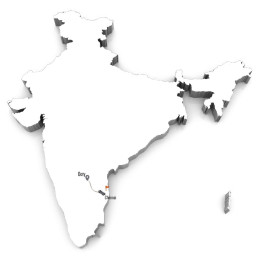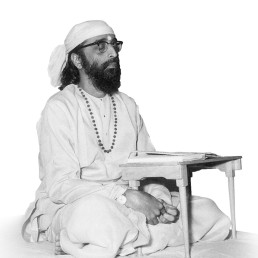
Jnana Yajna 12

Year & Dates:
June 12, 1955 to July 02, 1955

Yajna Topic:
Vivekachudamani

Place:
Chennai, India.
With every yajna, Pujya Gurudev Swami Chinmayananda adapted the format, technique, and topic to bring about the maximum benefit to the maximum number of people. In His quest of awakening people to their spiritual essence, the daring way in which He taught eight major Upanishads in the first ten Jnana Yajnas made people sit up. They wondered, “How can we reconnect with the vibrant, scientific core of Hinduism as Swami Chinmayananda explained it and reconstruct ourselves?” A Master Teacher that He was, Pujya Gurudev recognized that the curiosity of the people was kindled. However, the foundation had to be strengthened for the flag of Sanatana Dharma to fly high. So, when He came to Chennai for the 12th Jnana Yajna, He planned it to be a mobile Yajna, a first of its kind.
Spirituality, Widespread & Mobile
Aiming to reach the maximum, Pujya Gurudev spoke in three Yajnashalas at Egmore, Saidapet, and T’Nagar, three key areas of Chennai (then Madras). For the topic, He chose select verses from “Vivekachudamani,” a detailed and beautiful Prakarana Grantha (introductory text) written by Adi Shankaracharya. While educating the audience about the fundamental concepts of Vedanta, Pujya Gurudev had a greater objective. The 12th Jnana Yajna in a ‘mobile format’ facilitated the training of the members of Chinmaya Mission to be competent enough to hold street-corner meetings on the guiding principles of Hinduism across the city. Indeed, that far-reaching vision of spreading Vedanta shaped the motto of Chinmaya Mission: “To give maximum happiness to maximum people for maximum time.”
In Admiration
Miss Padmini of Chennai shares about the impact the Mobile Yajna has on her: This Yajna served further to strengthen my conviction that Vedanta is not a mere Utopian dream, but a practical Reality. Without religion life has no meaning. With religion it has both a meaning and a purpose. Our duty is to attain that perfection or Godhood, where alone one can have lasting happiness.

“Think,” Says Pujya Gurudev
The ocean does not put a ban upon the quantity of water that you can carry from it; the limitations are the limitations of your own pot. The sun does not ration its light from house to house or from room to room, but it is the walls that deny the entry of sunlight into a room. The river flows; everything depends on the canals you can cut to take its waters to your land. Similarly, the Guru, living in perfection, gives out knowledge in the language of his own intimate experience, and it is up to the individual seekers to get for themselves as much benefit as they can.
From Vivekachudamani Book, p. 46-47
A spiritual seeker has a healthy attitude towards things, and he keeps a balanced relationship with everything around him in life. He loves all and he fulfills his duties towards them. But he never allows the world of relationships around to bind him and loot him of his freedom to grow. He keeps ample elbow room to wage war against his own lower nature. Such an individual, intelligently organizing his connections with the world will certainly run fleet-footed towards the Goal to enter the state of freedom and experience supreme Vishnu-hood.
From Vivekachudamani Book, p. 126
Eternal Bliss Beyond Maya’s Veil